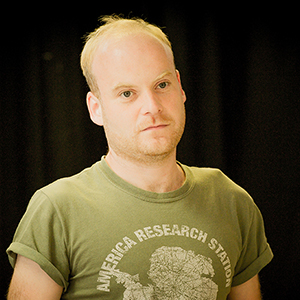
Jack Tarlton
Pitcairn‘s director, Max Stafford-Clark, likes to use improvisation to help actors immerse themselves in their characters and situations. But he doesn’t usually put himself in the firing line… Here’s actor Jack Tarlton’s rehearsal blog.
Being a True and most Accurate account by Jack Tarlton of the Treacherous and Convoluted Rebellion onboard Out of Joint
It is only a couple of days into the voyage of rehearsals for Richard Beans new play Pitcairn, and mutiny is in the air. The play chronicles the aftermath of the mutiny on the Bounty, and the attempt by Fletcher Christian and the other mutineers to establish a new life on the incredibly isolated island of Pitcairn.
Our director Max Stafford-Clark produces his well thumbed pack of playing cards and passes them around the table where the company is sat working line-by-line through the play. Each of us has to take a card without allowing anyone else to see which card we have. If it is a red suit then we remain loyal to Max and the rehearsal process. If it is black then we are mutinous. The higher the card the more loyal or rebellious we are. The lowest is 2, the highest 10. My card is Black 9.
Max says that between now and press night, some six weeks away, rebels who have drawn a black card must somehow cause an outbreak of mutiny. All options are open. “You could try to replace me with Sir Peter Hall if you want” Max advises. The loyal reds must try to stop the uprising. There is also an informant amongst us as the Joker was included and whoever selected this card must try to find out when the revolt is scheduled to take place and tell Max.
With one of the highest black cards in the room this makes me responsible for planning what form the mutiny will take. I will have to subtly work out who my fellow mutineers are, while avoiding giving any indication to any loyalists and must at all costs not reveal my plans to the informant. Not convinced that smuggling in the former Artistic Director of the Royal Shakespeare Company and the National Theatre to take over rehearsals is entirely feasible and with at least six weeks until we open I decide to play the long game, waiting to see if anyone will reveal their hand first.
It’s odd as these first few days of rehearsal are the very important time when you get to know your new cast mates and bonds and friendships slowly start to develop. Now though, there is another parallel game of secret relationships being played out in the tea breaks and lunch hours.
I have another job at Latitude Festival this weekend, and so I leave rehearsals on Thursday evening to drive to Suffolk. I discover I feel a sense of release that I do not have to think of the mutiny for four days, and it is definitely the responsibility of that as opposed to the work on the play itself that I feel freed from.
Upon returning on Monday morning though I discover that the deadline for the uprising has been drastically shifted to this coming Saturday. Probably a wise decision – what would happen if half the company didn’t turn up for the first night?
I now have to act fast. I decide that Saturday itself will be the day of the uprising. You’ll be hard pressed to find an actor that wants to rehearse on a Saturday, so this will hopefully give me the best leverage and perhaps even offer the possibility of turning a few low-numbered reds. This is my version of Fletcher Christian’s promise of the wonders of Tahiti to those onboard the Bounty.
I get bolder in dropping the subject into conversation and am fairly confident that I have found my first ally, Henry. I tell him that I am going to try to get this Saturday off for the mutineers. If we get enough on our side we will meet at a café near the rehearsal rooms and phone to say that we aren’t coming in. He gives me Siubhan and Adam’s names as probable mutineers. That makes four, but will that be enough to stage a daring raid on Max Stafford-Clark’s authority? And all the time I am worried that I could be talking to the informant.
Then suddenly, an unexpected opportunity opens up. Asking around I find myself in with a small nucleus of loyalists, including Adam and Naveed. I lie and say that I am a Red 4 and ask red Adam if he knows of anyone who is against us. He gives me a list of those he is pretty sure are rebels. Henry and Siubhan are there as are Lois and Ash. Blatantly asking Siubhan if I can borrow a pen and paper I write these names down, in the same fashion that a list of potential mutineers’ names were discovered inscribed on paper on Tahiti before the mutiny.
But this means that the Reds are compiling names. So I decide to bring things to a head and send an email to my potential co-conspirators, very aware that I am taking a huge risk in exposing my plan to someone who might not be a mutineer.
I’m Black 9. I’ve got in with Adam and Naveed, both Red 6 and they think I’m one of them, but they are onto us and think we are going to do it on Saturday morning. I propose we meet Wednesday morning (tomorrow) at 9.30am in the rehearsal room hopefully before the others are there. We barricade the door and don’t let anyone in unless Max agrees to give us Saturday morning off. Or if Max is in his office we take him hostage and do it there. Others can choose to join us. Who’s in?
Jack
By the end of the day I have confirmation from all of them – a wink, a pat on the back or a shared nod, and Lois tells me she thinks that Vanessa and Cassie could also be on our side. Leaving rehearsals that day I think that we had a solid plan, but am then hit by a broadside. I check the next day’s call on the way home – Max is not in until 12pm tomorrow.
Should I postpone? I fear that this will give the Reds time to flush me out. And so –
I just checked the call for tomorrow and Max is not in until 12pm, so change of plan. I assume that we’ll take a tea break just before Max arrives… As soon as Max arrives we lock him in the rehearsal room with us. If there is anyone not in our group still in the room then (and to confirm out group is Jack, Sam, Lois, Ash, Siubhan and Henry) then when I say “It’s Time” we walk them calmly to the door and barricade it behind them. We all remain inside the room.
Don’t do anything until I say “It’s Time.” We will then issue our demands – this Saturday off – and allow anyone who wants in to join us.
I go to bed knowing that tomorrow will bring either triumph or humiliating defeat. And then I dream about it all night.
By the time I get to work I have received confirmation from all but Siubhan. The first couple of hours are spent continuing to work in detail through each line of the play with our Assistant Director Tim, but I find it very hard to concentrate, constantly glancing at the time with a growing sense of unease as it gets closer to 12pm and Max’s arrival.
“Ok we’ll take a tea break there.” Tim says.
It’s time.
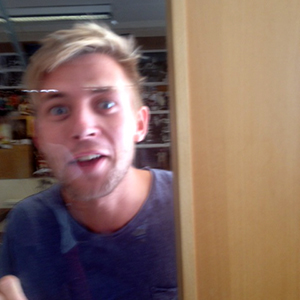
“Traitor!” Adam Newington sees the mutiny through the rehearsal room door.
Except that Siubhan, Ash and Henry have just wandered out of the room along with the bulk of the company. That’s not what we agreed! And there is still no sign of Max. Sam and Lois remain, and we exchange furtive glances and talk in hushed tones. Vanessa remains inside the room, checking her phone. Is she one of us? Sally our stage manager is on her computer. Tim walks back in. Sam, Lois and me look innocent. I can feel a knot in my stomach. And then a car draws up. Max is getting out. He’s entering the room. I’m approaching Sally. My throat feels dry. “Could I talk to you outside please?” I’m shutting the door behind her. Pulling heavy boxes over to barricade the door. I’ve just shouted “It’s Time!”
The first surprise is that Tim is suddenly telling Max “This is it! This is the Mutiny. We’re holding you hostage!” and tying him up with a skipping rope. By complete good fortune, he’s one of us! And Vanessa too! Adam is calling me a traitor through an open window. Then, there’s a banging on the fire door, those faithful to Max are trying to break in to save their director. Lois is there, making sure they don’t succeed. Some people have managed to slip in through the main door. Cutlasses have appeared from nowhere and my fellow mutineers are brandishing them to hold people back.
And I’m on a chair, shouting our demands – either Max agrees to give us Saturday off or we hold him here indefinitely and rehearsals will not be allowed to continue. He says that our writer Richard Bean is scheduled to work with us this weekend so that is out of the question. He asks Tim for his advise. “I’m a mutineer, I have to say we should have the day off!”
Eventually a compromise is reached. Max might give us a week on Saturday off, to go to the National Maritime Museum instead. This is a very watered down version of what I was demanding, but the reality of the situation is now piercing the adrenalin of the revolution. How long can I keep this up for? We’ve got to actually do some work at some point today. The plan worked. I’ve led the insurrection. But we need Max’s word. On the back of my script I hastily scrawl
“If rehearsals go well, you will give us Saturday 2nd August off (to go to the Maritime Museum) & let us know by Monday 28th July.”
Our director signs MAX in bright yellow highlighter pen. We untie him and everyone allowed back into the room.
Then the truth is revealed – the reason that Siubhan never answered my last email and left the room was that she thought I was the informant trying to incriminate her. But the biggest shock is Ash. The reason he left was because he was the Joker in the pack. I had allowed the spy into our very midst. His plan was to leave at the tea break and intercept Max’s car on the way in and warn him. Having played it so coolly throughout though, at the very last minute he thought he probably had enough time to go to the shop for a drink. By the time he was back it was too late, his mission failed. His captain was taken and the mutinous dogs were in control.
Henry had just forgotten.
Postscript
In the end we went to the National Maritime on Friday 1st August. And were all called into rehearsals the next day.
.

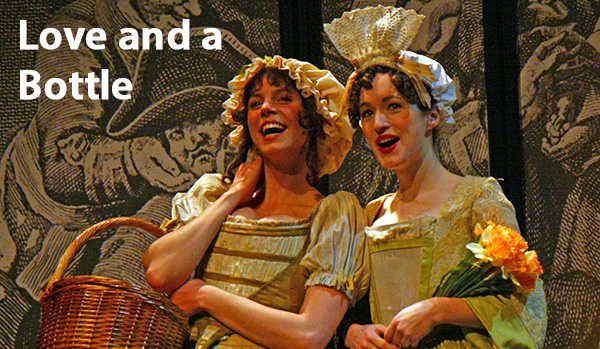
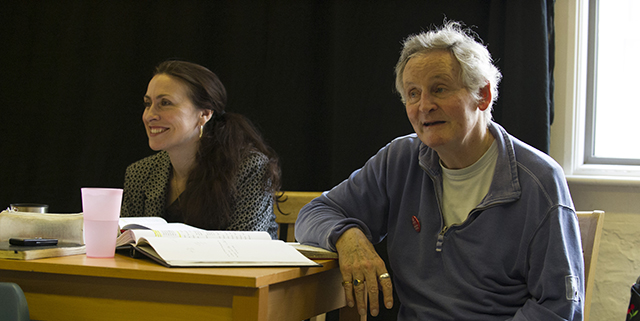
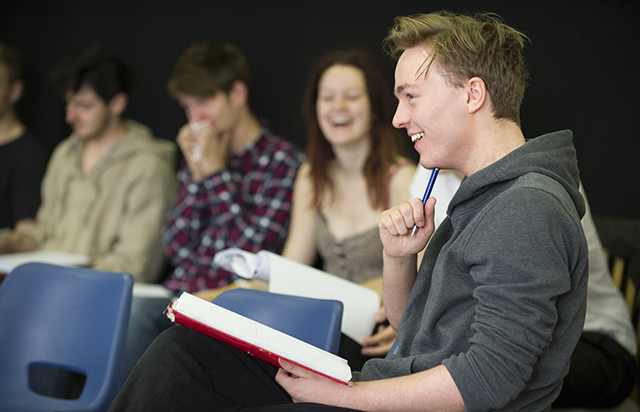

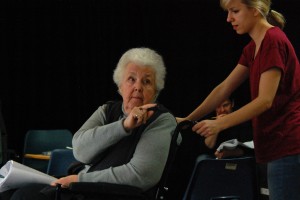
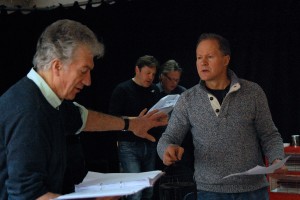

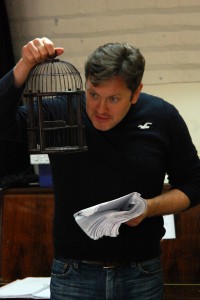
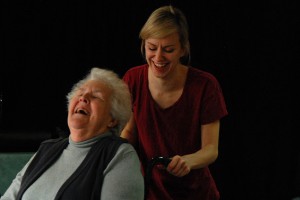

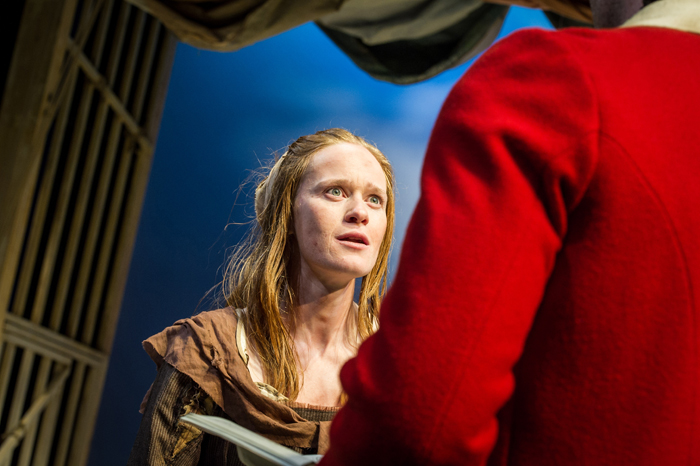 Theatre has had a massive and positive impact on my life. Prior to training at LAMDA, I spent years working in forum theatre and role playing in equality and diversity work. I worked for the NHS, the Police, and ran my own children’s theatre company.
Theatre has had a massive and positive impact on my life. Prior to training at LAMDA, I spent years working in forum theatre and role playing in equality and diversity work. I worked for the NHS, the Police, and ran my own children’s theatre company.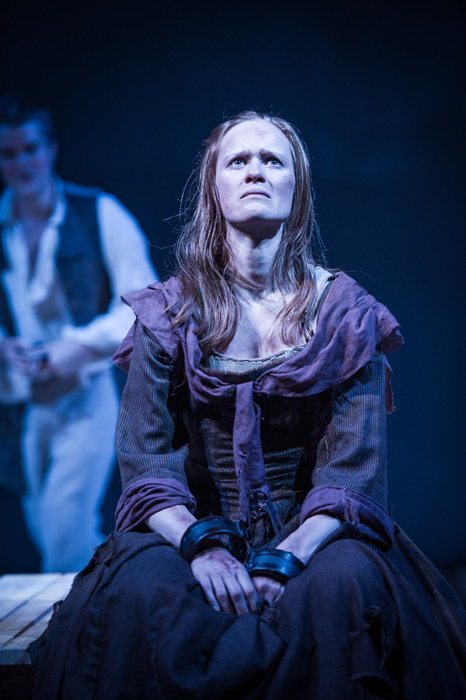 When she was still a child, her own father betrayed her: he shifted the blame to her very publically for a theft in order to save his own skin. She was beaten and humiliated in the street , with no one running to her aid, and so this traumatising experience further fuelled in her feelings of low self-esteem, a confused sense of identity, fear and rage and . In that moment of betrayal, her chances and choices in life were suddenly and dramatically shrunk. Liz also feels deeply unattractive. Her own brother tells her to her face she is ugly and he plants the seed that she can earn money by going on the game, suggesting that, after all, most men don’t look at the mantelpiece. This is further rammed home by her pimp who tells her as she ages to supplement, or “spice”, her dwindling earnings by following in her father’s footsteps to be a “nibbler”, or small-time thief.
When she was still a child, her own father betrayed her: he shifted the blame to her very publically for a theft in order to save his own skin. She was beaten and humiliated in the street , with no one running to her aid, and so this traumatising experience further fuelled in her feelings of low self-esteem, a confused sense of identity, fear and rage and . In that moment of betrayal, her chances and choices in life were suddenly and dramatically shrunk. Liz also feels deeply unattractive. Her own brother tells her to her face she is ugly and he plants the seed that she can earn money by going on the game, suggesting that, after all, most men don’t look at the mantelpiece. This is further rammed home by her pimp who tells her as she ages to supplement, or “spice”, her dwindling earnings by following in her father’s footsteps to be a “nibbler”, or small-time thief.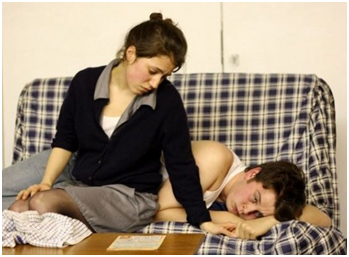

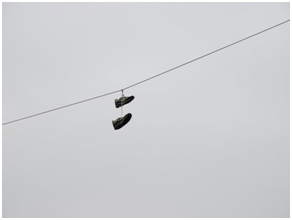
 Search
Search
